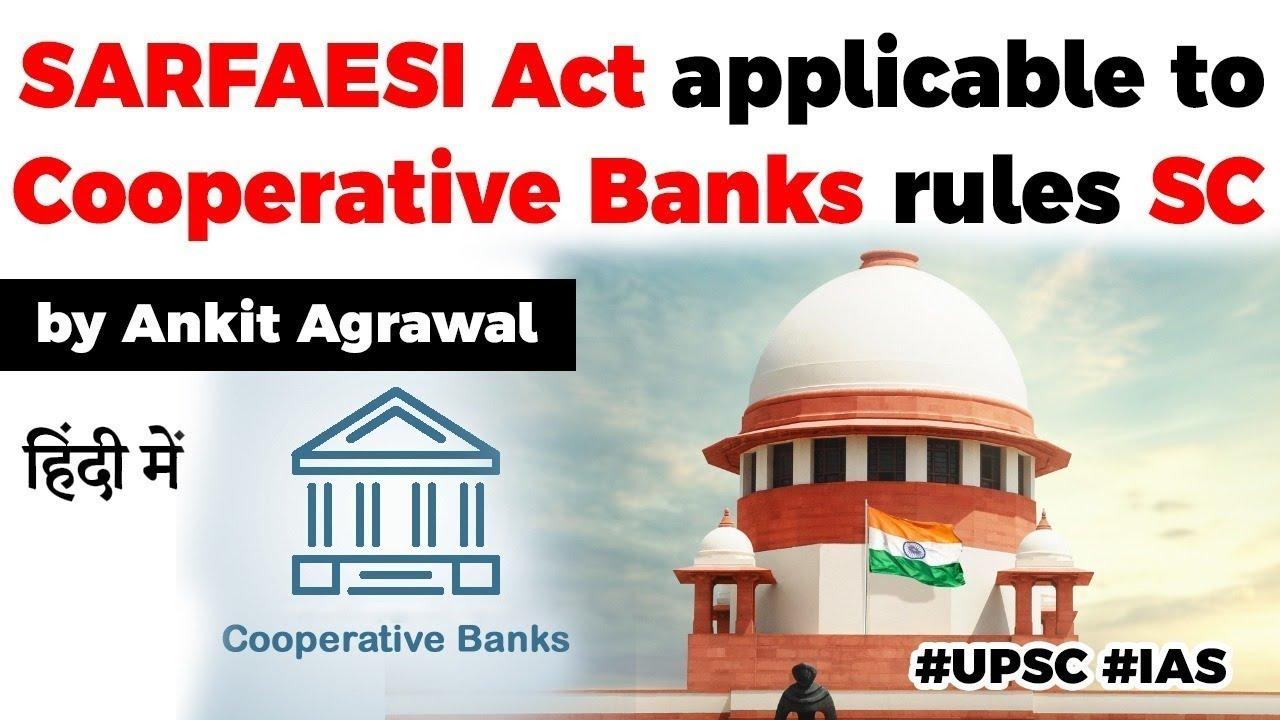Table of Contents
SARFAESI ACT, 2002
- The financial sector is important for India’s efforts to achieve
- success in rapidly developing its economy.
- But slow pace of recovery of defaulting loans and escalating levels of non-performing assets of banks and financial institutions is big hurdle to develop rapidly.
- Narasimham Committee I and II and Andhyarujina Committee was constituted by the Central Government for the purpose of examining banking sector reforms.
- These Committees have made suggestions-
- To form new legislation for securitization and
- Empowering banks and financial institutions to gain possession of the securities and to sell them without any intervention of the court
- Securitisation and Reconstruction of Financial Assets and Enforcement of Security Interest Act (Sarfaesi)

DEBT RECOVERY TRIBUNAL & DEBT RECOVERY APPELLATE TRIBUNAL
- Banks utilize this act as an effective tool for bad loans (NPA) recovery.

- The SARFAESI Act was introduced in 2002.
- By a union government notification passed in 2003, cooperative banks were allowed to proceed under the SARFAESI Act.
- However, in 2007, while hearing a case, a three-judge bench of the Supreme Court held that-
- Cooperative banks established under the Maharashtra Cooperative Societies Act, the Andhra Pradesh co-operative societies act and the Multi-state Cooperative Societies Act, transacting the business of banking, do not fall within the meaning of ‘banking company’ as defined in Section 5(c) of the Banking Regulation Act.
WHY THERE WAS SUCH AMBIGUITY WITH COOPERATIVE BANKS?
- Cooperative bank is governed by both Banking and cooperative legislation, as they are registered under the Cooperative Society Act, 1965
UNION LIST VS STATE LIST
- Most of the cooperative banks are formed by cooperative societies under state laws.
- It was argued that Entry 45 of List I under the subject
- “Banking” cannot apply to cooperative banks.
- Instead, they will be covered under Entry 32 of List II (State List) which squarely covers the subject “Cooperative Societies”.
- The three-judge Bench in that case also held that the provisions of the recovery of debts due to banks and financial institutions act by invoking the doctrine of incorporation, are not applicable for recovery of dues by the cooperatives from their members.
- Central government also passed a law in 2013 that made the SARFAESI Act applicable to cooperative banks.

- However, in view of several conflicting decisions on the issue, a three-judge bench referred the matter to a larger bench.

- The Supreme Court has upheld a law passed by the Centre in 2013 that made the SARFAESI Act applicable to cooperative banks.
- The five-judge Bench has also unanimously held that
- Co-operative banks involved in banking activities are covered u/s 5(c) & 56(a) of the Banking Regulation Act, 1949 which is a legislation relatable to Entry 45 of List I.
- The Court in effect also upheld the 2003 notification issued under the Banking Regulation Act, by which co- operative banks were brought within the class of banks
Latest Burning Issues | Free PDF






















 WhatsApp
WhatsApp